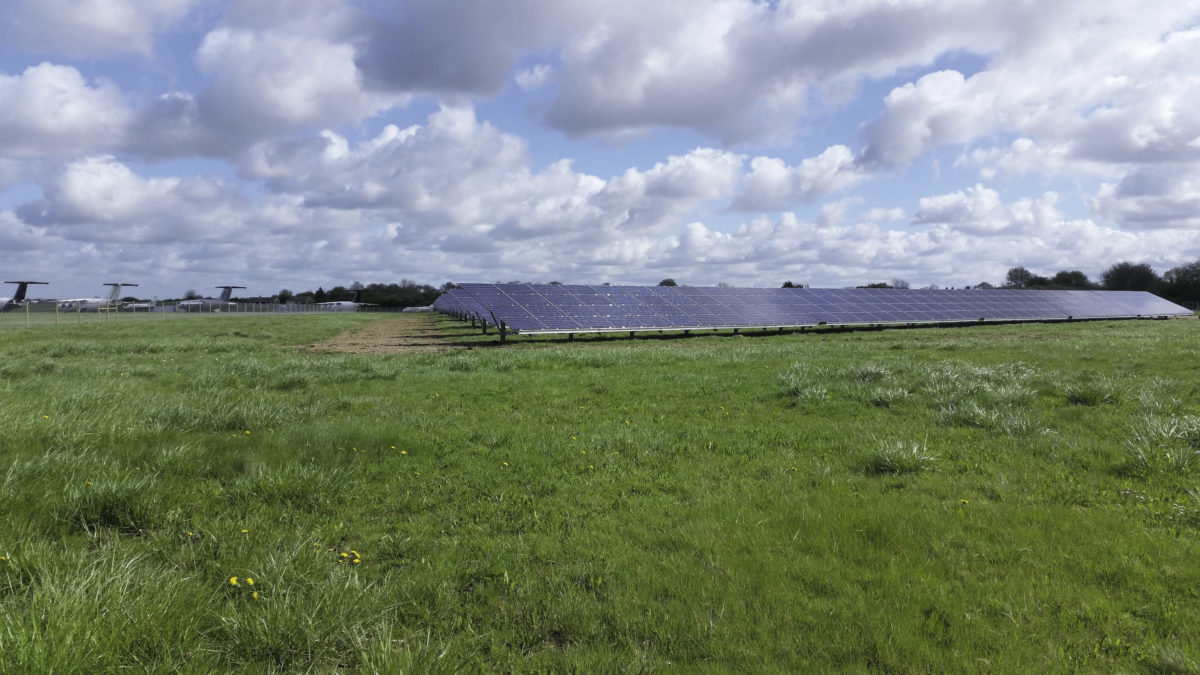While the economic benefits of home solar have been highlighted by a UK survey in which 85% of homeowners said they would consider panels to reduce their electricity bill, a majority of respondents said better financial incentives would help persuade them to go solar.
The UK government's Department of Business, Energy & Industrial Strategy (Beis) has published the results of its latest public opinion survey into clean power and a majority of respondents signaled willingness to consider rooftop solar “in the next few years.”
With 30% of the 4,367 homeowners polled in spring definitely open to solar, and 29% probably set to consider it, some 6% of those questioned said they already had rooftop panels.
Why solar?
The 1,921 respondents who said they were open to installing solar for the first time were asked what motivations they might have for doing so. Some 85% said they would go solar to reduce energy bills; 56% to be less dependent on the grid; and 38% to give them the ability to be paid for exporting excess electricity to the grid. Some 16% of those questioned said they would buy panels because of ease of maintenance and 15% said solar had been recommended to them.
Of the 2,907 people asked what sort of measures would encourage them to install rooftop solar, 76% said better incentives, and 45% specifically mentioned a higher payment for electricity exported to the grid. Some 38% of respondents said more general information about solar might persuade them to sign up and 28% specifically cited guidance on local planning procedures, with 24% saying they might opt for solar as part of a community initiative.
The findings of the survey also appeared to demolish the idea of a nation opposed to having big solar sites nearby, based on the ‘nimby‘ (not-in-my-back-yard) principle.
Big solar
Of 4,369 respondents asked whether they would be happy to have a solar farm “built in their local area,” 54% said yes and 27% had no strong feelings either way, with only 7% of those polled saying they would be unhappy with such a development. A further 8% indicated such a site would not be viable near their home, with a significant bias towards respondents in London on that matter.
Perhaps less surprisingly, only 45% of the over-65s said they would be happy to have a solar project nearby, compared to 54% of 45-year-old to 64-year-olds.
Apart from the obvious wider clean energy and emission-reduction benefits of big solar, 57% of the 2,363 respondents who had indicated happiness to have a solar field nearby said it was because it would reduce the UK's dependence on foreign energy, with Beis noting the survey was carried out with Russia's invasion of Ukraine under way.
Popular content
Some 39% of those asked why they backed big solar said it would mean cheaper energy; 34% said it would bring economic and community benefits; 30% said it would bring jobs and the same percentage cited cleaner air.
Of the 361 people who said they would be unhappy to have a solar park nearby, 61% said it would be unsightly; 56% said it would have a negative impact on flora and fauna; and 35% feared it would reduce house prices. Some 33% said it would lead to less reliable energy supply; 26% and 24%, respectively, cited an adverse effect on the community and the local economy; and 14% objected to the cost of energy generation at such plants.
Why not solar?
The survey also asked 845 people why they would not consider solar for their homes.
Some 63% of those respondents said panels were too costly; 26% said they would be unsightly; 18% said the UK did not receive enough sunlight; 16% said panels would not be viable on their home; and 11% said it was because they were considering moving house.
Commenting on the survey results, Chris Hewett, CEO of trade body Solar Energy UK, said: “These results are another ringing endorsement of the UK’s fast-growing solar power sector. Whether slashing home energy bills, powering warehouses, or mounted on land managed for sheep and wildlife, it is no wonder solar power has won the backing of British people. These figures also show how out of touch some MPs are with the public on solar farms. There are no more-popular and low-cost ways to generate power than solar and wind.”
And nuclear?
While the Beis survey highlighted solar as the most popular renewable energy source, with 87% of respondents indicating support, the government's other ‘low-carbon energy' messages appear to be cutting through.
While 45% of respondents were opposed to fracking for shale gas, versus 17% in support, some 44% of those questioned backed carbon capture and storage – versus 7% against – and the numbers were 37% versus 14% for small nuclear reactors. Some 48% of respondents were in favor of developing nuclear fusion energy, with 3% against.
This content is protected by copyright and may not be reused. If you want to cooperate with us and would like to reuse some of our content, please contact: editors@pv-magazine.com.



By submitting this form you agree to pv magazine using your data for the purposes of publishing your comment.
Your personal data will only be disclosed or otherwise transmitted to third parties for the purposes of spam filtering or if this is necessary for technical maintenance of the website. Any other transfer to third parties will not take place unless this is justified on the basis of applicable data protection regulations or if pv magazine is legally obliged to do so.
You may revoke this consent at any time with effect for the future, in which case your personal data will be deleted immediately. Otherwise, your data will be deleted if pv magazine has processed your request or the purpose of data storage is fulfilled.
Further information on data privacy can be found in our Data Protection Policy.